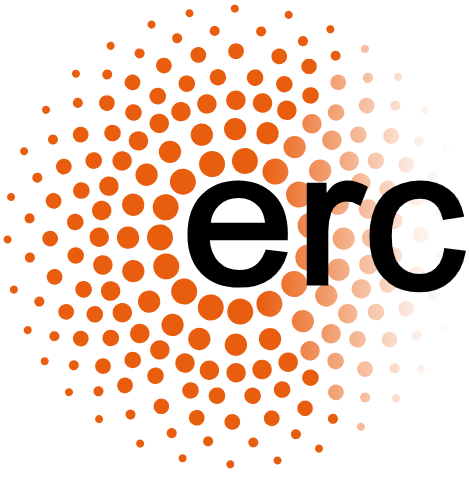Call for applications: WomatWork
 The European Union-funded project “Women at work: for a comparative history of African female urban professions (Ethiopia, Sudan, Tanzania, Ghana) 1920-1970” (WomatWork) invites applications for research and fieldwork grants aimed to support Master students, PhD candidates, and postdocs interested in the history of women of popular classes working in urban professions during the colonial and early post-colonial periods in Africa (1920-1970). The selected candidates will present their results at a summer school that will take place in Addis Ababa from 7 to 15 October 2024. Details about the application process available below.
The European Union-funded project “Women at work: for a comparative history of African female urban professions (Ethiopia, Sudan, Tanzania, Ghana) 1920-1970” (WomatWork) invites applications for research and fieldwork grants aimed to support Master students, PhD candidates, and postdocs interested in the history of women of popular classes working in urban professions during the colonial and early post-colonial periods in Africa (1920-1970). The selected candidates will present their results at a summer school that will take place in Addis Ababa from 7 to 15 October 2024. Details about the application process available below.
WomAtWork represents the first comparative investigation into the history of female urban popular
professions in in three African countries – Ghana/Gold Coast, Sudan, and Tanganyika/Tanzania – over the
course of fifty years (1919-1970). Not only is this topic under-studied in African history, but these professions
(i.e. midwives, beauticians, wedding singers, market vendors, craftswomen) are also characterised by
fascinating and unsettling aspects. For example, notions such as a set price for a service and fixed working
times or workplace did not apply to many of them.
WomAtWork aims first to discover the peculiarities of these labour patterns and see their historical
transformations as a result of political changes and the introduction of new technologies and commodities.
Secondly, it examines professional subjectivities, the work ethos, norms and values of women at work. Finally,
it questions the relationship between these professionals and their communities – including in the light of the
social stigma sometimes attached to them – as well as the nexus between these labourers and protest, charting
when and why they laid down their tools.
Based on an innovative methodology, this project seeks to overcome the invisibility of women in official
archives by weaving together different threads of sources. It begins inside those photographic archives
connected with institutions that had conscious agendas of representation and routines of intense textual
production (for example, missionary stations). In some cases, these visual and textual sources lead to networks
or families of women professionals, whose oral history will be solicited. Third, the project aims to analyse the
vernacular press combined with oral accounts.
Through these objectives and methodologies, WomAtWork will be a participant in the mission of writing a
more democratic, more inclusive history, one that firmly establish the centrality of women’s labour in African
history.
Application process
The deadline for application is 15th March 2024.
To apply, please send to this email address: This email address is being protected from spambots. You need JavaScript enabled to view it.
- the application form (see below), which should be no more than 3000 words (excluding bibliographic references);
- a one-page cover letter in which you explain your background, your interest in the project, and the place this has in your current research plans;
- a detailed curriculum vitae (in PDF), including relevant publications;
- up to two reference letters and/or letters of support from your institution.
Deliverables
The successful candidates will be expected to write a working paper about the size of an article (6000-10000 words, in English) in which they will discuss the main findings of their funded research and fieldwork.
They are also expected to join the summer school in Addis Ababa on 7-15 October, which is mandatory. This will include 5 days of training and 2 days of conference, in which the candidates will present their results.
Travel expenses to and from Addis Ababa as well as accommodation will be covered by the project (please note that the scholarship grants are not intended for covering the attendance to the workshop, but for research only).
Conditions of support
- The amount offered is the equivalent of 1000 euros. Scholarships will be paid in local currency, unless differently stated by the relevant UMIFRE. This amount will be disbursed 50% at the beginning of fieldwork and 50% after the workshop in Addis Ababa. The fellowship is awarded as a contribution towards actual research costs and does not include stipends for applicants.
- There is no restriction on nationality for the applicants. Research can be concerned with any country of the African continent covered by the UMIFREs that are partners of the project (CFEE, IFRA Nigeria, IFRA Kenya, IFAS-Research, CEDEJ Khartoum).
- Applicants based in African research institutions, particularly women, are strongly encouraged to apply.
- It is mandatory to be attached to an institution of higher education (colleges, universities, research units).
Advice for applicants
This ERC research funding is competitive as we receive more applications than we can fund. Your application must state clearly and compellingly the relevance of your research for the ERC project (annexed) and its possible contribution to its objectives.
For more information about the ERC project and activities, see here: https://womatwork.hypotheses.org/
Application form – max 3000 words
1. Title of the project
2. Main research questions (max 500 words)
3. Literature review (max 500 words)
4. Description of sources (textual, written, visual), fieldwork, and archives to be visited
(max 500 words)
5. Methodology (how will you use these sources? Which is your approach?) (max 500
words)
6. Objectives (max 500 words)
7. Bibliography of relevant works (free size, but quote at least 5 relevant works)

Social Media
Mailing List